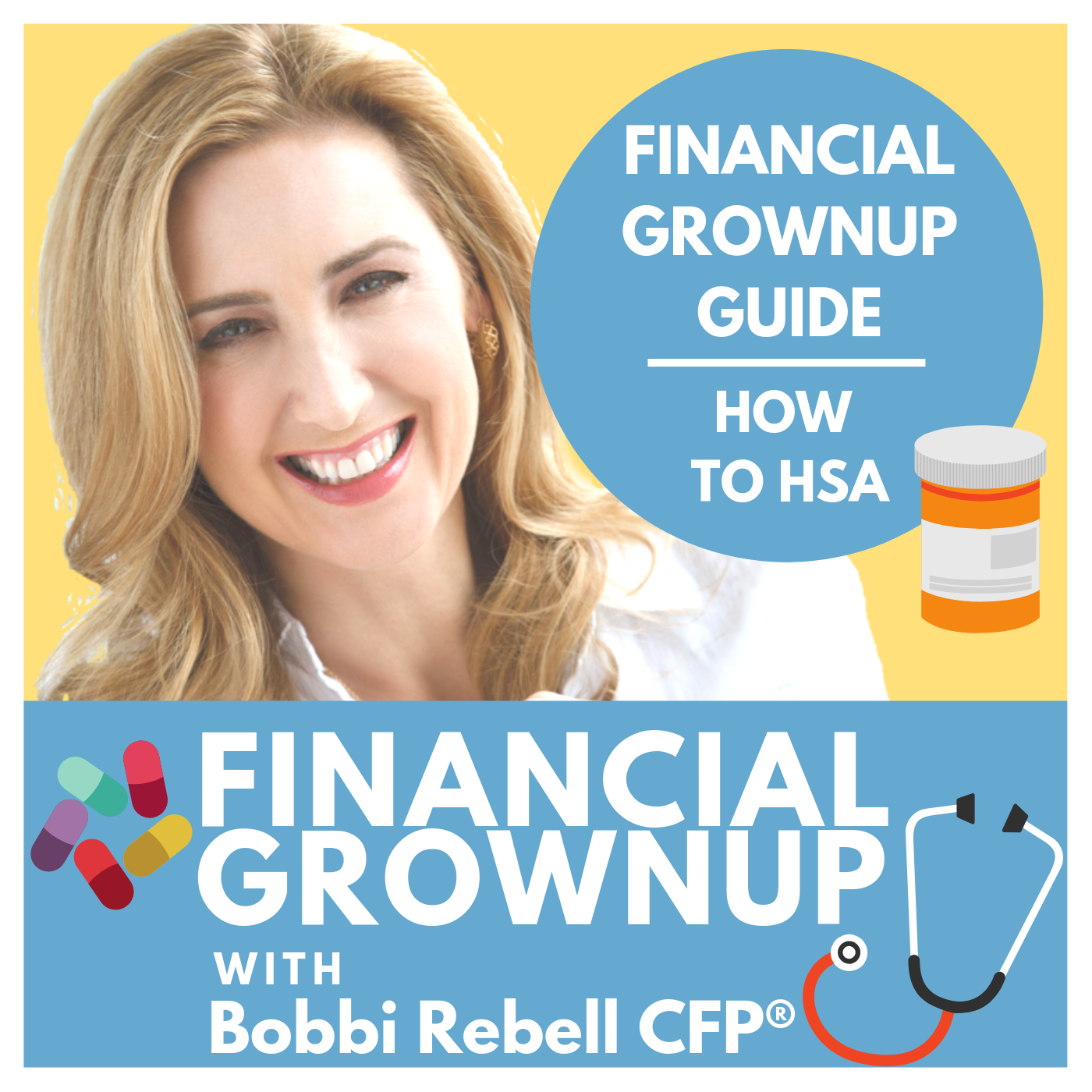HSA's, aka Health Savings Accounts are getting a lot of buzz - because they can be awesome. Here is the Financial Grownup Guide to 10 things you need to know to find out if HSA’s are right for you.
Here are the 10 things you must know about them and why you need to find out asap if they are right for you.
What are they. Health savings accounts are tax advantaged savings accounts- that means you put in pre-tax money- that can be used to pay for medical related expenses.
Love paying no taxes- how much can I put in? That changes every year. For 2019 you can put in up to $3500- and families can put in up to $7000. If you are over 50 you can do a catch up of an additional $1000.
What kinds of things can I use it for? Generally the things you would get re-imbursed for by insurance once you use up the deductible- so NOT the bi-weekly premiums you are paying but YES to doctor visit you went to or a medication that wasn’t reimbursed because, you have a high deductible that you haven’t met yet.
Am I eligible? You have to have - another acronym here- an HDHP- that is a High Deductible Health Plan. That is defined by the IRS as a deductible of $1350 for an individual and $2700 for a family. You also have to have some hefty out of picket amounts: $6,750 for individuals and $13,500 for families. You also can’t have another medical plan. You can’t be enrolled in Medicare. And you can’t be a dependent on someone else’s tax return.
How do I actually set it up- this can be done through your employer- right along with the health care plan- which is usually a good idea because some companies will also put money into the account for you- and we all love ‘free’ money. According to Mercer the average company contributes almost $700. That money is not included in your gross income. it can also be set up at some financial institutions.
What does it cost: Many financial institutions do charge fees but they are often waived if you can maintain a minimum balance. I will leave some links in the show notes of great articles that rank financial institutions by things like fee structure from places like Morningstar and the College Investor- which is run by financial grownup Robert Farrington- you guys should make sure to check out his great episode. Also with financial institutions you can put in after tax money - and then deduct it from your income.
What if I don’t use it all? This is my # favorite fact about HSA’s - you get to keep the money. it’s your money. So it rolls over until forever. Even if you later GO on medicare and can’t contribute, you can use it to pay premiums there. So good. BY the way- FSA- flexible spending- it is use it or lose it at the end of the year - big difference here.
What if I leave my job? No worries- HSA’s are portable.
Explain the investing thing. The money is invested and the earnings, assuming they are used for eligible medical expenses, remain tax free.
What’s the catch? The big catch is that if you think you are going to have big medical expenses, or you won’t have the cash to actually save and fund the HSA- you might want to consider a lower deduct-able health plan- it’s safer and you won’t get hit so hard with high medical bills. You can still do the flexible spending account..
EPISODE LINKS
Here are some resources to find out more about fees associated with HSA’s
Some of the links in this post are affiliate links. This means if you click on the link and purchase the item, I will receive an affiliate commission at no extra cost to you. All opinions remain my own.





